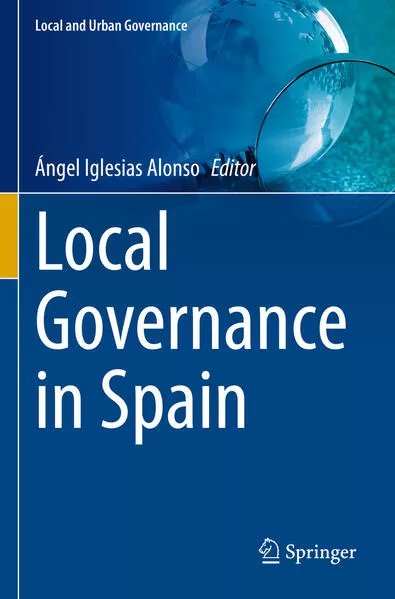
- Publikationen ca: 3
- Fragen & Antworten
Ángel Iglesias Alonso
Ángel Iglesias Alonso is Professor of Political Science and Administration at the Universidad Rey Juan Carlos in Madrid. He has participated as principal investigator and researcher in numerous national (Spanish Ministry of Science) and international (EU-COST-H2020) competitive projects on local governments, and has published his results in numerous scientific articles in national and international indexed journals (JCR, Scopus) as well as in book chapters in European (Palgrave-McMillan, Nomos, etc.) and national (Tecnos, Dykinson, etc.) publishers. He has been a consultant to Spanish local governments in large and medium-sized cities.. He is a national prize winner in local government, awarded by the Spanish Ministry of Territorial Administrations and also won the Fernando Albi Prize in local government and administration, awarded by the provincial government of Alicante in Spain.
Local Governance in Spain
The book addresses in detail local governance in Spain. In recent decades, local governments in Europe have increasingly found themselves under pressure from a multitude of new challenges, such as demographic change, climate change, fiscal austerity policies, digitization, the demand for more citizen participation in local affairs, and the migration crisis in some of them, to name just a few.
Local Governance in Spain
The book addresses in detail local governance in Spain. In recent decades, local governments in Europe have increasingly found themselves under pressure from a multitude of new challenges, such as demographic change, climate change, fiscal austerity policies, digitization, the demand for more citizen participation in local affairs, and the migration crisis in some of them, to name just a few.
Local Governance in Spain
The book addresses in detail local governance in Spain. In recent decades, local governments in Europe have increasingly found themselves under pressure from a multitude of new challenges, such as demographic change, climate change, fiscal austerity policies, digitization, the demand for more citizen participation in local affairs, and the migration crisis in some of them, to name just a few.


